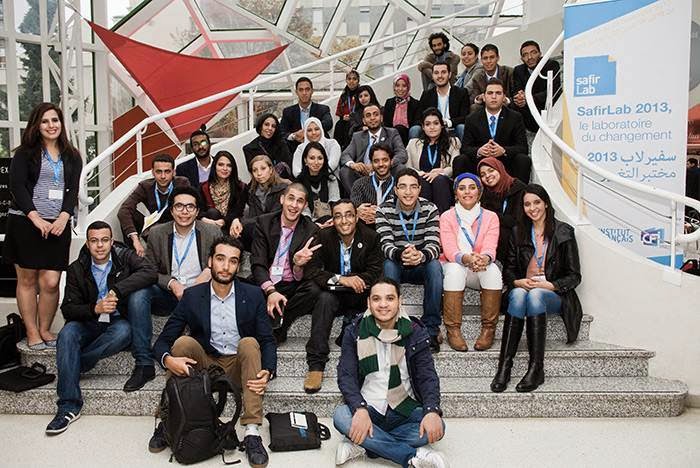SafirLab brings together young people with media and civil society initiatives from the Middle East and North Africa (MENA). For this second edition, I mentor the participants on technology for transparency and better governance.
What is the initiative about?
SafirLab is a joint effort by l’Institut Français and the French Ministry of Foreign Affairs through its media cooperation branch, CFI. SafirLab sees itself as an accelerator for projects that youth from the MENA region aims to drive forward.
The 2013 SafirLab edition was its second one, taking place 18-29 November 2013 in Paris.
I participated as a mentor focusing on technology for transparency and better governance. Other mentors we happily interact with include Tariq Krim, the founder of Netvibes and JoliDrive, and Morgane Tual, a blogger and journalist at Le Monde interested in ‘ethical tech’.
Mentoring is a key point in the whole programme, as a skill-acquisition enabler for youth. During our session, we heard the questions which emerged. Interestingly, many of the participants were searching to identify current means of implementing Open Data and Open Gov values in countries with stable power structures.
Diversity matters
Mentoring is important, but what one gets to immensely enjoy in such encounters is the diversity. SafirLab’s ambition is indeed to bring about true diversity, both mentors and participants.
The 2013 edition was a success for diversity. Thus, I met an Egyptian who works to enable a social entrepreneurship network to emerge in the country; a Lybian whose desire is to see free press overtake the embattled country; two Yemenis whose ambitions are to fight disinformation and to launch a photojournalism school in Yemen; and a Tunisian who founded a ‘social network’ between researchers and doctors working on rare genetic disorders.
The importance of MENA-wide networking transpired through participants’ impressions. As a result of the intense two weeks they spent in Paris, they made useful and strong connections. We observed this quite clearly during our training sessions: individuals often ignore the political and economic developments of their neighbours. They struggle to meet each other in person due to costly transportation across MENA and restrictive visa regulations.
Read more at Wamda and learn more about MENA-specific open knowledge at Open MENA.



